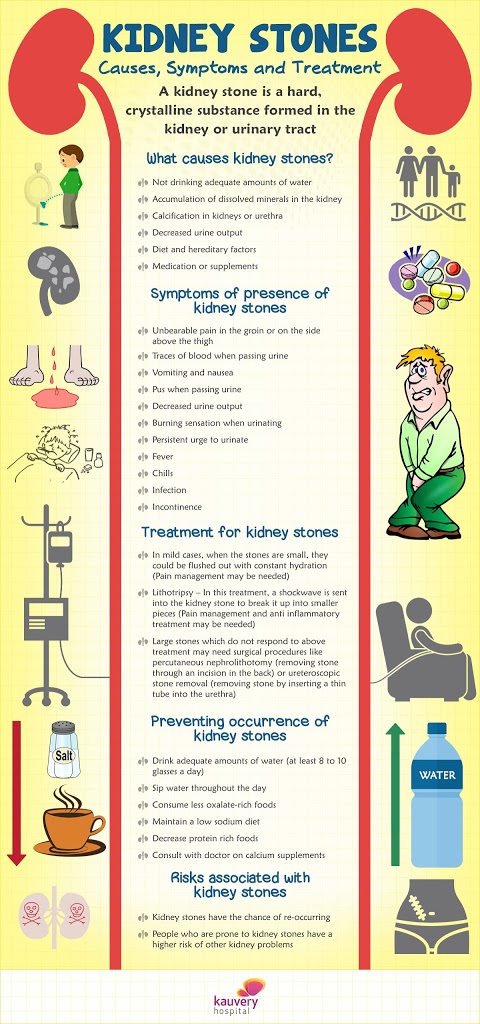A kidney stone is a hard, crystalline substance formed in the kidney or urinary tract.
What causes kidney stones?
- Not drinking adequate amounts of water
- Accumulation of dissolved minerals in the kidney
- Calcification in kidneys or urethra
- Decreased urine output
- Diet and hereditary factors
- Medication or supplements
Also Read: Dietary changes to reduce risk of kidney stones
Symptoms of presence of kidney stones
- Unbearable pain in the groin or on the side above the thigh
- Traces of blood when passing urine
- Vomiting and nausea
- Pus when passing urine
- Decreased urine output
- Burning sensation when urinating
- Persistent urge to urinate
- Fever
- Chills
- Infection
- Incontinence
Treatment for kidney stones
In mild cases, when the stones are small, they could be flushed out with constant hydration (Pain management may be needed) Lithotripsy – In this treatment, a shockwave is sent into the kidney stone to break it up into smaller pieces (Pain management and anti-inflammatory treatment may be needed)
Large stones which do not respond to above treatment may need surgical procedures like percutaneous nephrolithotomy (removing stone through an incision in the back) or ureteroscopic stone removal (removing stone by inserting a thin tube into the urethra)
Also Read: The Risk Factors In Developing Kidney Stones
Preventing occurrence of kidney stones
- Drink adequate amounts of water (at least 8 to 10 glasses a day)
- Sip water throughout the day
- Consume less oxalate-rich foods
- Maintain a low sodium diet
- Consult with doctor on calcium supplements
- Medication or supplements
Risks associated with kidney stones
- Kidney stones have the chance of re-occurring.
- People who are prone to kidney stones have a higher risk of other kidney problems.


